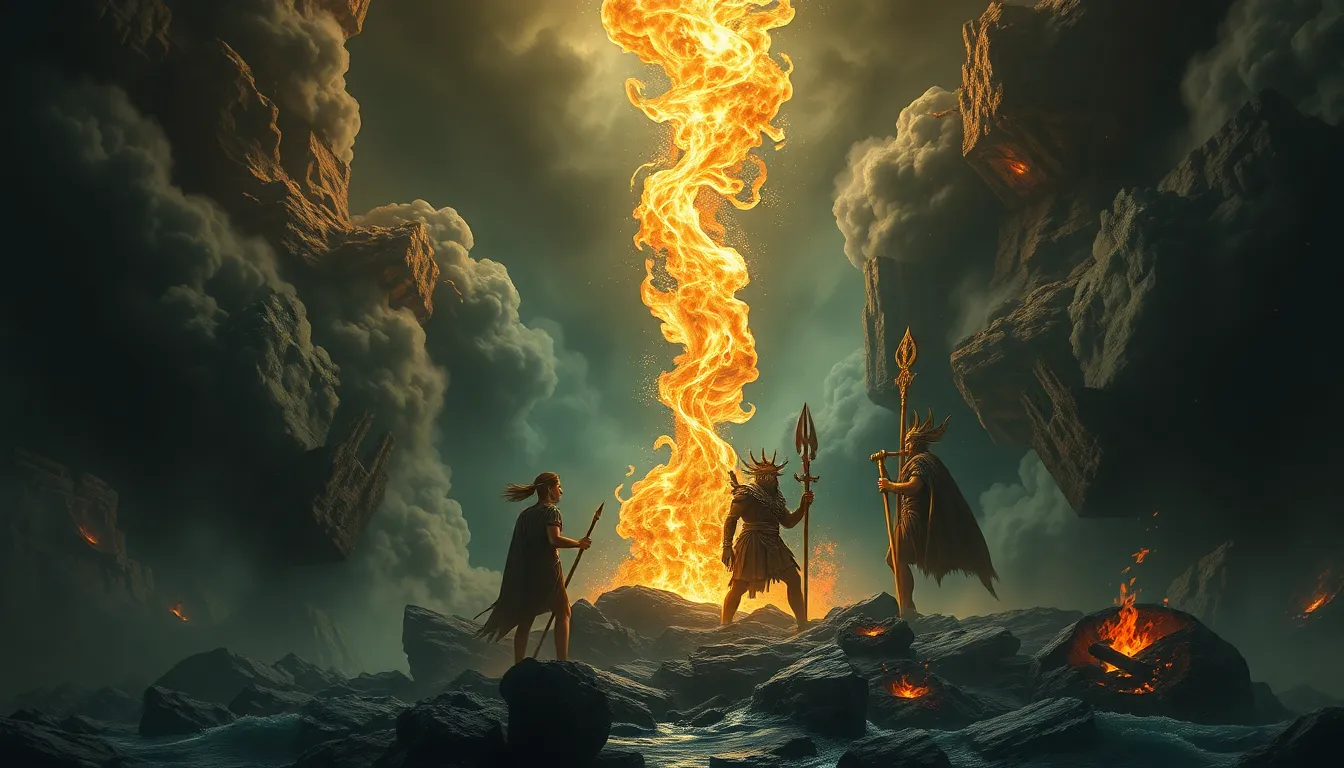The Wrath of Olympus: How Greek Gods Punished Mortals
Introduction: The Divine Hierarchy of Olympus
Greek mythology is a vast tapestry of stories featuring gods, goddesses, heroes, and mortals, all woven together in a narrative that explores human nature and the divine. The gods of Olympus, led by Zeus, were seen as powerful, immortal beings who wielded control over various aspects of life and nature. They were not just distant deities; they were intimately involved in the affairs of mortals, often intervening to enforce their will or punish transgressions.
In this intricate mythology, fate and hubris play significant roles in the lives of mortals. Hubris, or excessive pride, often led to a mortal’s downfall, provoking the wrath of the gods. This article aims to explore the various ways in which the Greek gods exacted punishment on mortals, highlighting their methods, motivations, and the moral lessons embedded in these tales.
The Nature of Divine Justice in Greek Mythology
Divine justice in Greek mythology is a complex concept that intertwines retribution, morality, and the whims of the gods. The Greeks believed that the gods maintained a cosmic order, and any disruption caused by mortal actions would be met with divine consequences. This justice was not merely punitive; it was also educational, intended to teach mortals about their place in the universe.
- Distinction between Punishment and Reward: The gods were not capricious; they rewarded virtuous behavior and punished wrongdoing. The distinction between the two was often blurred, as the motivations of the gods could be influenced by personal grievances.
- Moral Lessons: Each punishment served a dual purpose: to correct the wrongdoer and to serve as a warning to others. The stories of divine retribution were cautionary tales that conveyed important moral lessons about humility, respect, and the dangers of hubris.
Zeus: The King of Gods and His Thunderous Wrath
As the ruler of Olympus, Zeus wielded immense power and was known for his ability to punish mortals for their transgressions. His thunderbolts were a symbol of his authority and a tool of divine retribution.
Notable stories include:
- Lycaon: King Lycaon of Arcadia doubted Zeus’s divinity and served him human flesh at a banquet. In retaliation, Zeus transformed him into a wolf and destroyed his kingdom with a flood.
- The Flood Myths: Zeus’s decision to flood the earth to cleanse it of wickedness is one of the most famous tales of his wrath, demonstrating the extent of his power and the severity of his justice.
Hera: The Jealous Queen and Her Vengeful Acts
Hera, the queen of the gods, was known for her jealousy, particularly regarding Zeus’s numerous affairs. Her wrath was often directed at those she perceived as threats to her marriage.
Examples of her punishments include:
- Io: Hera transformed Io into a cow to protect her from Zeus’s advances and sent a gadfly to torment her.
- Heracles: Hera’s jealousy led her to make Heracles’s life a series of challenges and labors, showcasing her vengeful nature.
The psychological aspect of jealousy is central to Hera’s character, as her need for revenge often overshadowed her compassion.
Poseidon: The God of the Sea and His Tempestuous Fury
Poseidon, the god of the sea, was known for his volatile temperament and his swift punishments for those who disrespected him. Sailors and coastal cities were particularly vulnerable to his wrath.
Key stories of his vengeance include:
- Odysseus and the Cyclops: After blinding Poseidon’s son Polyphemus, Odysseus faced Poseidon’s wrath, which led to a long and treacherous journey home.
- The City of Corinth: When the people of Corinth failed to honor Poseidon, he sent a sea monster to ravage their coastal towns.
Athena: Wisdom and War—The Duality of Punishment
Athena, the goddess of wisdom and warfare, embodied a duality in her nature. While she was a protector of heroes, she also punished those who displayed arrogance and disrespect towards her.
Instances of her punishment include:
- Arachne: Arachne, a skilled weaver, boasted that she was better than Athena. In response, Athena turned her into a spider, forever weaving.
- Medusa: Medusa was punished for desecrating Athena’s temple by being transformed into a Gorgon, reflecting the balance between wisdom and vengeance.
Apollo: The God of Prophecy and Retribution
Apollo, the god of prophecy, music, and healing, also had a fierce side when it came to punishing mortals who disrespected him or his oracles.
His methods included:
- Ignoring Oracles: Those who ignored the prophecies of Apollo often faced dire consequences, as seen in the tale of Cassandra, who was cursed to utter true prophecies that were never believed.
- Marsyas: Marsyas, a satyr who challenged Apollo to a musical contest and lost, was flayed alive as punishment for his hubris.
Artemis: The Protector of the Innocent and Her Wrath
Artemis, the goddess of the hunt and protector of the innocent, was fierce in her defense of purity and nature.
Examples of her wrath include:
- Actaeon: After accidentally seeing Artemis bathe, Actaeon was transformed into a stag and hunted down by his own hounds, emphasizing the importance of respect for nature and the goddess.
- Transgressions Against Her Sanctuaries: Any mortal who disrespected her sacred spaces faced severe repercussions, as Artemis was a staunch defender of her domain.
The Furies: The Avenging Spirits of the Underworld
The Furies, also known as the Erinyes, were female spirits of vengeance who pursued those who committed crimes, particularly familial ones. They served as an embodiment of divine retribution, punishing mortals who escaped the justice of the gods.
They were relentless in their pursuit and were often invoked in stories of betrayal and murder, reminding mortals that no crime would go unpunished.
Conclusion
The tales of divine punishment in Greek mythology are rich with lessons about morality, humility, and the consequences of one’s actions. The gods of Olympus, with their complex personalities and motivations, serve as both protectors and avengers, reminding mortals of their place in the hierarchy of the cosmos. By exploring these narratives, we gain insight into the cultural values of ancient Greece and the timeless lessons that continue to resonate today.


